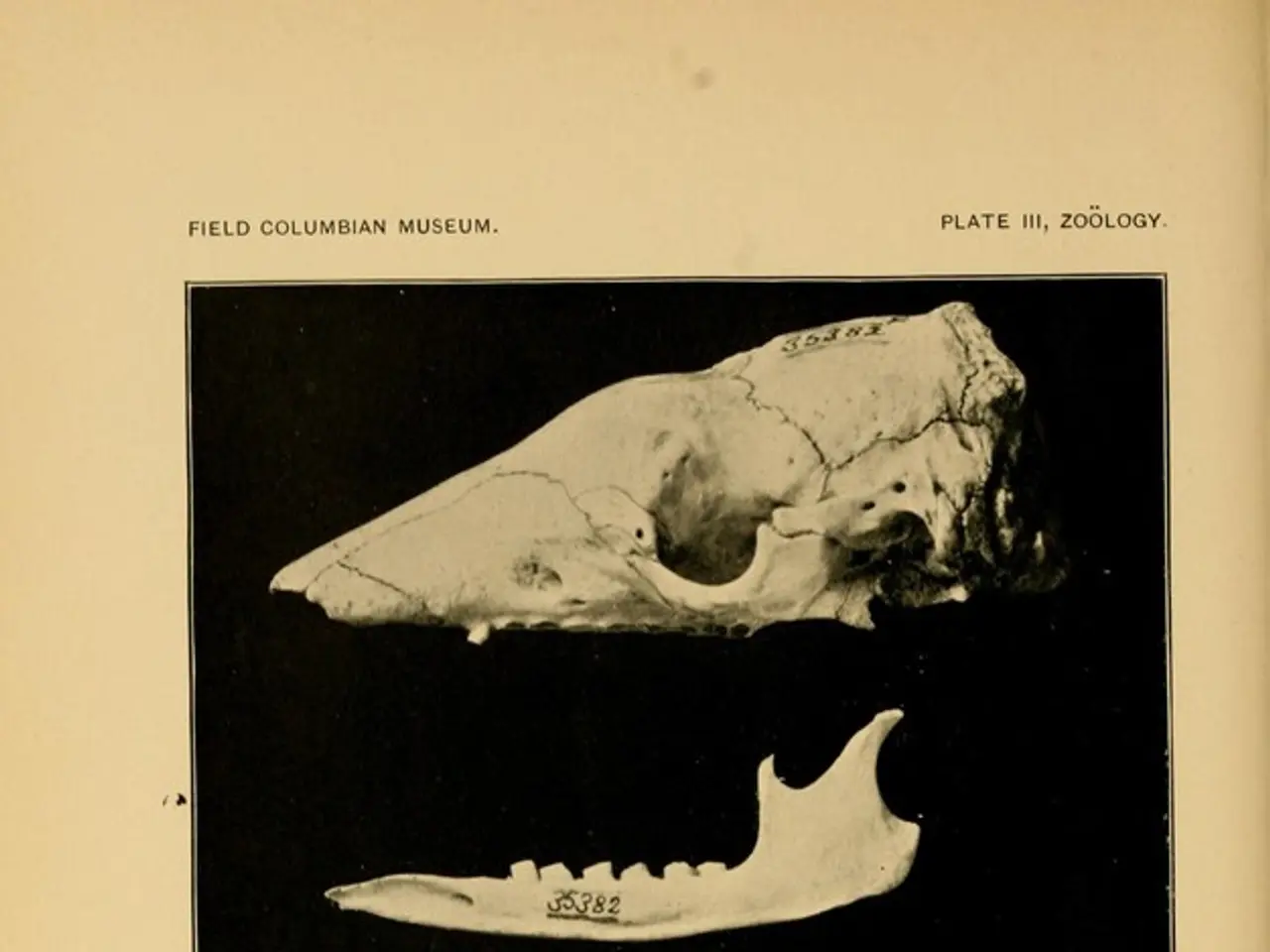Impacts, assessments, and additional insights on Osteoporosis and bone density
Bone density is a crucial aspect of maintaining a healthy body, especially as we age. Two common metrics used to evaluate bone density are T-scores and Z-scores. These metrics serve different purposes and provide valuable insights into bone health.
T-scores
T-scores compare an individual's bone density to that of a healthy young adult, typically aged 30, when bone mass is at its peak. This score helps identify individuals with bone density below the normal range, indicating potential osteoporosis or osteopenia.
- A T-score of ≥ -1.0 indicates normal bone density.
- A T-score between -1.0 and -2.4 suggests osteopenia (low bone mass).
- A T-score ≤ -2.5 indicates osteoporosis, with a higher risk of fractures.
Z-scores
Z-scores, on the other hand, compare an individual's bone density to that of people of the same age, sex, and size. While less commonly used for older adults, Z-scores are useful in identifying unexpected bone loss patterns, particularly in younger individuals. A result of -2.0 or less may indicate osteoporosis in the case of a Z-score.
Key Differences
- Reference Group:
- T-score: Compares to a healthy young adult.
- Z-score: Compares to peers of the same age, sex, and size.
- Use in Diagnosis:
- T-score: Primarily used for diagnosing osteoporosis and osteopenia.
- Z-score: Useful in identifying unexpected bone loss patterns, especially in younger individuals.
- Clinical Application:
- T-score: Mainly used for diagnosis and monitoring of osteoporosis.
- Z-score: Helps in spotting secondary causes of bone loss and monitoring specific cases where bone density is unexpectedly low for the age group.
Bone density testing, such as dual-energy X-ray absorptiometry (DEXA), helps healthcare professionals diagnose osteopenia or osteoporosis. While osteoporosis is irreversible, specific measures can slow down or halt the progression of bone loss. These measures include getting enough calcium and protein, adequate vitamin D, regular exercise, limiting alcohol consumption, quitting smoking, treating underlying health conditions, and understanding medication side effects.
It is not possible to measure bone density at home accurately. Bone density is a measurement of bone strength, and stronger bones have fewer holes and contain larger amounts of minerals such as calcium. Certain medications, such as bisphosphonates, can help bone loss and improve bone density. These medications work by either inhibiting bone breakdown or promoting bone formation.
Bone density testing is essential for maintaining bone health, especially in older age when the replacement of bone cells slows down, resulting in a loss of bone density over time. Regular exercise, particularly weight-bearing and resistance exercise, has a positive effect on bone density. Experts recommend screening for osteoporosis in certain groups, including females, males, females with risk factors, and males with risk factors. Doctors also consider factors such as age, sex, personal medical history, and family history when diagnosing osteoporosis.
Osteoporosis-related fractures are most common in the spine, hips, and wrists. While these fractures can be painful and debilitating, early detection and prevention through lifestyle changes and medication can significantly reduce the risk of fractures.
- Science has provided us with valuable insights into chronic diseases like osteoporosis, which affects bone health, especially in older adults.
- Chronic kidney disease, another chronic condition, can impact overall health and wellness, and proper nutrition is crucial for managing it.
- Fitness and exercise play a significant role in maintaining not only bone health but also sexual health and mental health, and even men's health and women's health.
- Mental health is an essential aspect of family health, as disorders like depression and anxiety can impact not only individuals but also their loved ones.
- Parenting can have a profound impact on children's health, including their bone health and skin care, and its importance should not be underestimated.
- Medicare is vital for covering the costs of various medical conditions, such as chronic kidney disease or osteoporosis, as well as treatments like therapies and medications.
- CBD, a compound from the cannabis plant, has been explored as a potential therapy for managing pain and improving sleep, which are critical for maintaining overall health.
- Skin care is critical for maintaining good health, especially in the context of the sun's harmful UV rays, which can cause damage to the skin over time.
- Osteoporosis can increase the risk of chronic diseases like chronic kidney disease, further emphasizing the importance of regular bone density testing and prevention measures.
- Nutrition plays a vital role in the health of the entire family, from supporting bone health and mental wellness to promoting proper development in children and ensuring the long-term health of aging parents.




